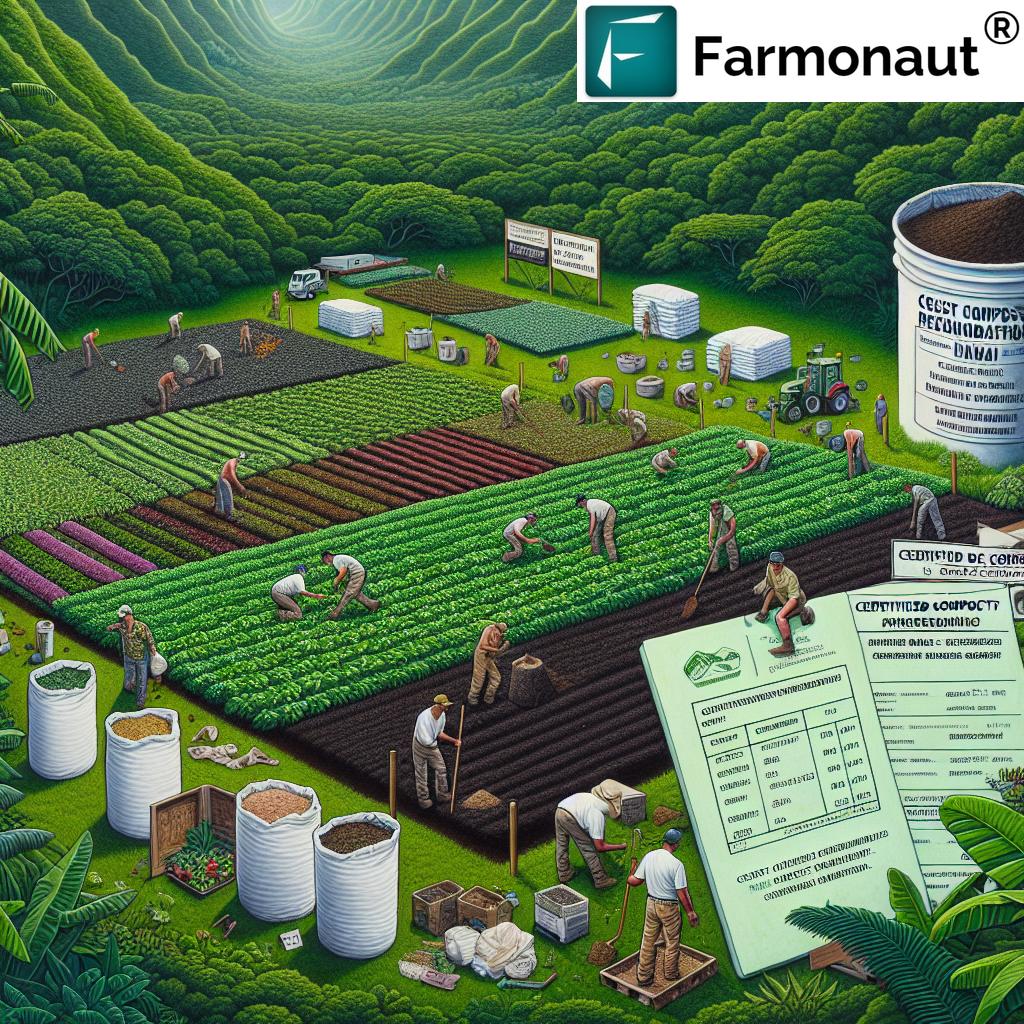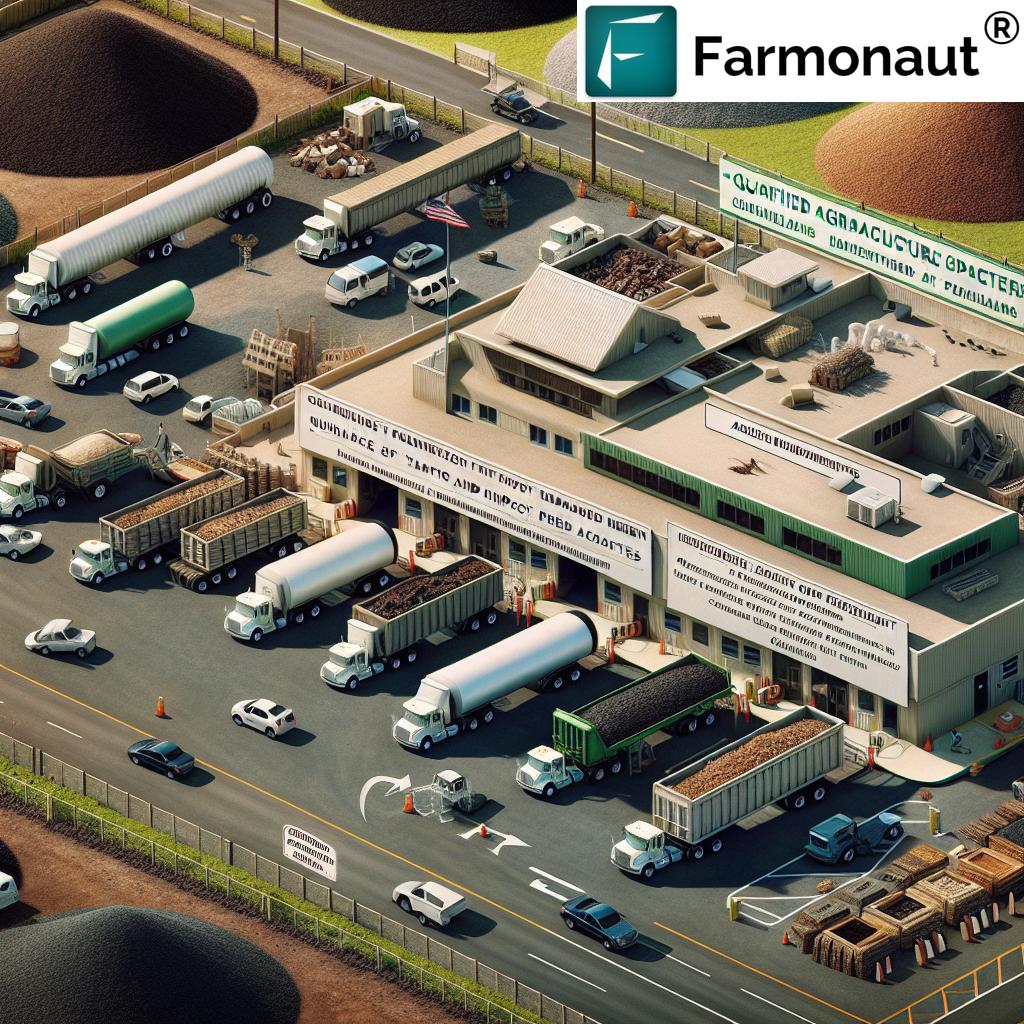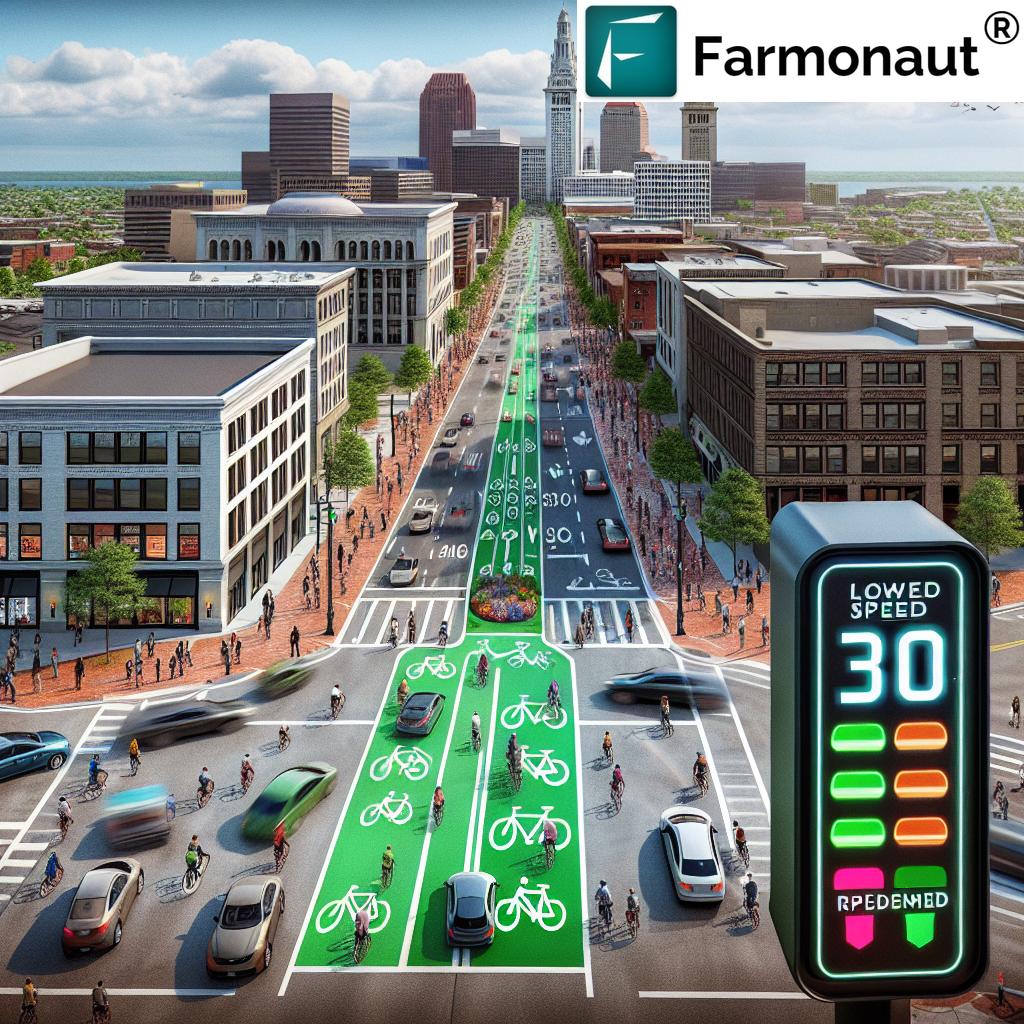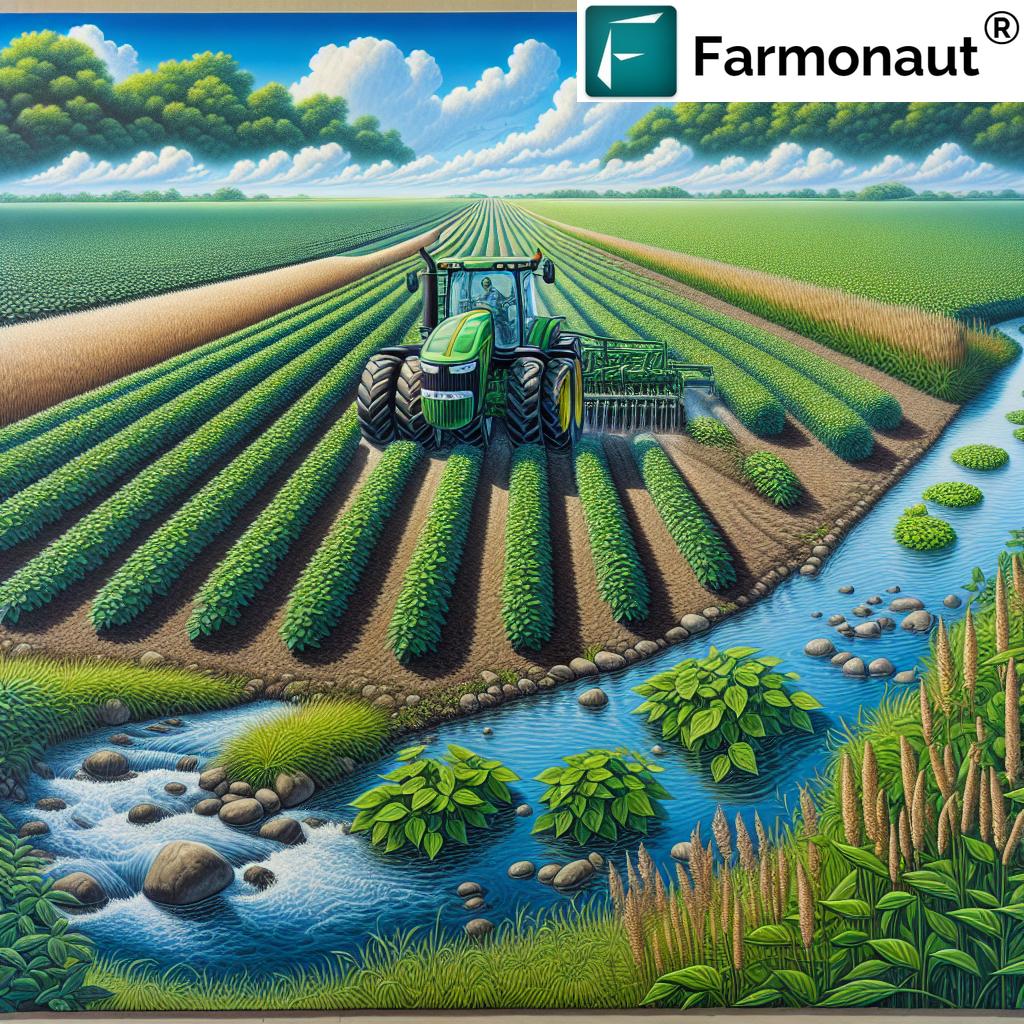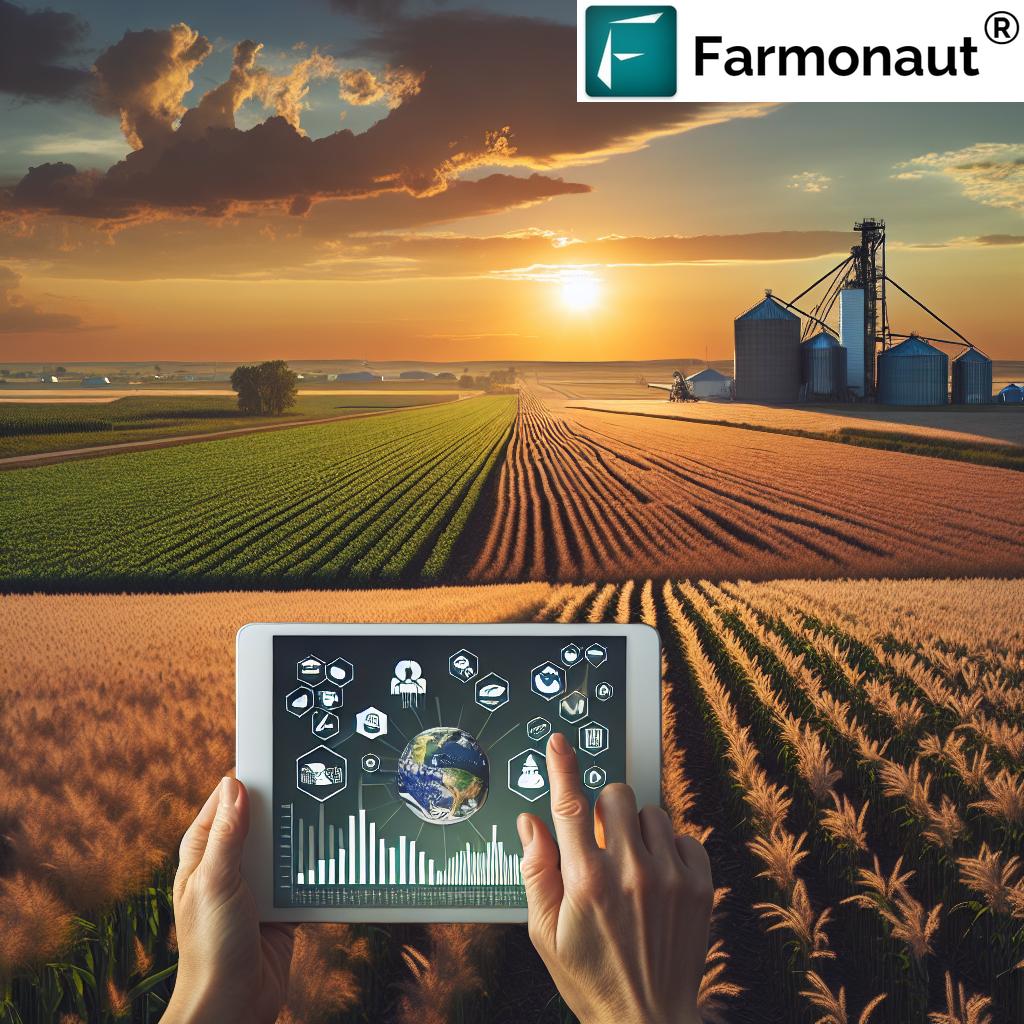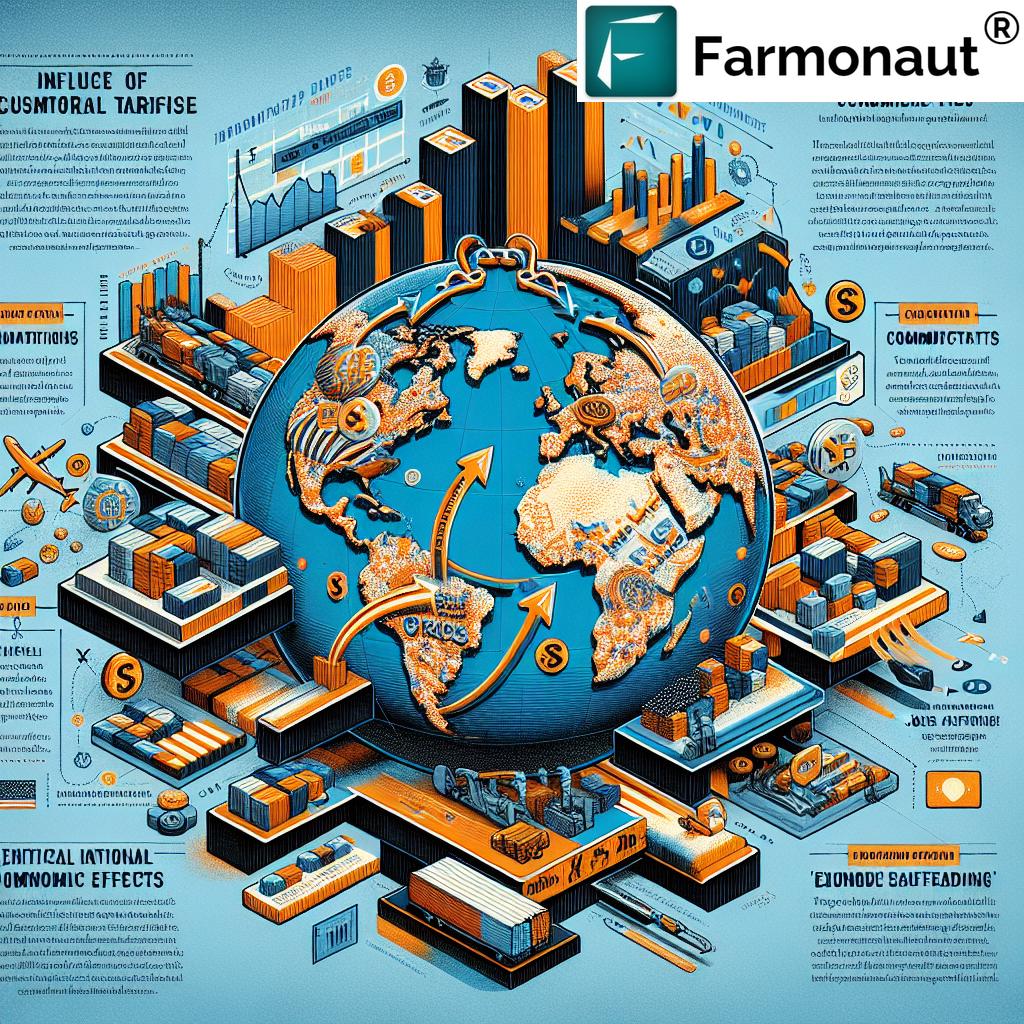Compost Reimbursement Hawaiʻi: Secure Up to 50% Funding in 2025
“Hawaiʻi’s compost reimbursement program covers up to 50% of compost costs for farmers in 2025.”
“Over 200 Hawaiʻi agricultural operations benefited from compost reimbursements, promoting certified sustainable practices statewide.”
Table of Contents
- Compost Reimbursement Hawaiʻi 2025: An Overview
- Why the Cost of Compost in Hawaiʻi Matters
- Who Can Apply? Qualified Agricultural Applicants & Businesses
- Funding, Legislation & Statewide Impact
- Certified Compost Processors Hawaiʻi & Solid Waste Management Regulations
- Controlling Invasive Species in Agriculture & Ensuring Sustainability
- Application Process: Compost Reimbursement Hawaiʻi Step-by-Step
- Compost Reimbursement Impact & Cost Savings Table
- How Precision Agriculture & Technology Drive Sustainability
- How Farmonaut Helps Transform Hawaiʻi Agricultural Operations
- Farmonaut Subscription Options
- FAQ: Compost Reimbursement Hawaiʻi 2025
The cost of compost in Hawaiʻi has always been a pressing concern for agricultural operations across the state. With the unique climate, rich agricultural history, and ever-present threat from invasive species like the coconut rhinoceros beetle, every grower faces the pressing need for certified, pest-free compost as part of sustainable farm and landscape management. That’s why the Compost Reimbursement Hawaiʻi program for 2025—offering up to 50% funding for the purchase and transport of compost—is such an exciting opportunity. In this in-depth guide, we’ll show how you can secure compost reimbursement, boost profitability, and support Hawaii’s environment and agriculture.
Compost Reimbursement Hawaiʻi 2025: An Overview
The Hawaiʻi Department of Agriculture (HDOA) has once again shown commitment to long-term sustainability, soil health, and pest management by completing the fiscal year 2025 round of compost reimbursement disbursements. For agricultural operations, this means crucial support to foster certified, sustainable, and resilient farming practices.
- What’s new this year? A total of $427,670 in disbursements has been granted to 24 agricultural operations (14 farming and 10 landscaping), with an average reimbursement of $17,820 each.
- The reimbursement program covers both the purchase and transport of compost within Hawaiʻi between July 1, 2024 and May 1, 2025.
- Eligible operations can receive up to 50% of costs reimbursed, capped at $50,000 per qualified applicant.
- All compost must be bought from certified processors, retailers, or wholesalers licensed and regulated in Hawaiʻi to ensure safety, quality, and pest control.
With significant new funding—$400,000 released in August 2024 by Gov. Josh Green, M.D., plus an additional $27,670—this program underscores a major push by the Hawaiʻi state legislature and the HDOA toward environment-friendly agriculture reimbursement programs.
Why the Cost of Compost in Hawaiʻi Matters for Agricultural Operations
Compost is more than just a soil amendment—it’s a vital element for crop resilience, nutrient cycling, and organic certification. Yet, in Hawaiʻi, the cost of compost is often a major expense due to the island geography, shipping fees, and need for certified pest-free materials.
- Transportation cost: Moving large quantities of compost across islands or to remote areas significantly increases expense.
- Supply and certification: Certified processors and strict regulations (to protect against invasive species and pests) also impact the final cost for growers and landscapers.
- Invasive Species Control: The requirement that compost be sourced from companies regulated by the Hawaiʻi Department of Health Solid Waste Management Program helps prevent the spread of invasive threats, like the coconut rhinoceros beetle, but narrows options for suppliers.
For many businesses, the cost of quality compost is often as high as irrigation, fertilizer, or farm labor—so partial reimbursement isn’t just a financial relief, it’s an operational necessity that allows farms and landscapers to maintain sustainable and certified practices.
Who Can Apply? Qualified Agricultural Applicants & Businesses
To ensure funds are directed where they will have the biggest positive environmental and economic impact, Hawaii compost reimbursement program eligibility is limited to:
- Farming operations: Any size, including commercial farms, community-supported agriculture, and specialty crop growers. These operations can utilize the program to reduce their dependency on chemical inputs and adopt sustainable waste management solutions.
- Landscaping businesses: Those using compost for turf, ornamentals, or landscape restoration, provided their work qualifies under HDOA criteria as agricultural operations and not solely as decorative or cosmetic installations.
Both types of qualified operations must ensure:
- Compost is purchased from a certified processor, retailer, or wholesaler licensed to operate in Hawaiʻi.
- All vendors are regulated and meet the stringent standards set by the Hawaiʻi Department of Health, specifically those involved in solid waste management to reduce and control pest risks.
- Compost is applied within Hawaiʻi during the program period (July 1, 2024 – May 1, 2025).
Notably, reimbursements max out at $50,000 per qualified applicant. Having an organized record of compost purchases, transport costs, and utilization rates is essential during the application process.
Are you seeking digital tools for managing your financial and operational records, or for monitoring crop health as part of your agricultural business? Farmonaut’s Large Scale Farm Management App offers precision, scale, and ease—helping growers manage everything from cost tracking to sustainability certifications.
“Hawaiʻi’s compost reimbursement program covers up to 50% of compost costs for farmers in 2025.”
“Over 200 Hawaiʻi agricultural operations benefited from compost reimbursements, promoting certified sustainable practices statewide.”
Funding, Legislation & Statewide Impact of Agriculture Reimbursement Programs
The 2025 fiscal year marked an impressive demonstration of funding for compost reimbursement through a blend of state and departmental finances. Here’s how it broke down:
- State Legislature: Act 231 (2024) appropriated key funds for the HDOA to focus on programs that directly address the control of invasive species in agriculture.
- Governor-Approved Funds: $400,000 released from legislative appropriations in August 2024.
- Additional HDOA Support: $27,670 added from internal departmental funds.
These investments recognize the essential role that reimbursement can play for both farming and landscaping businesses in supporting food security, ecological stability, and pest management.
- Average reimbursement: $17,820 per operation
- Maximum reimbursement: $50,000 per qualified applicant
- Total businesses benefitted: 24 in 2025 (with over 200 historically participating)
The legislative emphasis on sustainability, solid waste management, and certified agricultural practices not only benefits Hawaii’s environment but also ensures direct economic savings and greater competitiveness for local businesses.
Looking ahead, the 2025 legislative session included a bill intended to continue these vital reimbursements into 2026, pending new funding approvals.
Certified Compost Processors Hawaiʻi & Solid Waste Management Compost Regulations
To protect Hawaii’s delicate ecosystem, only certified compost processors—that is, processors, retailers, and wholesalers licensed by the state and regulated by the Hawaiʻi Department of Health Solid Waste Management Program—are eligible suppliers for this program.
- What does “certified” mean? Only companies and vendors meeting the highest standards for solid waste processing, pest control, and sustainability practices can legally supply compost for reimbursement.
- How does this help? It ensures compost is free from invasive species and pest risks, especially the coconut rhinoceros beetle, thus safeguarding our farms, landscapes, and natural habitats.
- Hawaiʻi Department of Health checks all compost processors for compliance with solid waste management and pest regulations.
- Growers must retain receipts and documentation from certified suppliers to qualify for reimbursement.
- Compost sources may include: local certified processors, regulated wholesalers, and authorized retailers. Home-brewed or uncertified compost is not eligible for funding.
For more information on certified processors and solid waste compost regulations, growers can check with the HDOA or the Department of Health Solid Waste Management Program.
Controlling Invasive Species in Agriculture & Ensuring Sustainable Practices
One of the principal motivations behind Hawaii’s compost reimbursement program is the control of invasive species in agriculture. Left unchecked, pests—especially the coconut rhinoceros beetle—can devastate crops, landscapes, and native flora.
- Certified compost safeguards against transfer of pests between islands and farms;
- Programs like Hawaii’s require that all compost is screened, processed, and monitored under strict solid waste management compost regulations;
- Reduction in chemical pesticide use: By improving soil health with compost, growers can reduce their reliance on chemical controls against both diseases and insect pests.
Ongoing vigilance—supported by funding from the legislature and regulatory enforcement by the state’s health department—ensures we can maintain our unique agricultural identity and prevent irreversible environmental costs.
Thinking of adding traceability to your supply chain to ensure pest-free, certified products? Farmonaut’s blockchain-based product traceability solutions help growers and agribusinesses guarantee safe, transparent, and credible product journeys from the farm to the market.
Application Process: Compost Reimbursement Hawaiʻi Step-by-Step
The application process may seem daunting, but it boils down to a few clear steps for agricultural operations. Here’s how you can maximize your chances of eligibility and reimbursement:
- Check Eligibility: Ensure your operation qualifies (farming or landscaping), and your business is in good standing.
- Source Compost: Purchase only from certified processors, retailers, or wholesalers licensed and regulated in Hawaiʻi.
- Keep Records: Collect and organize receipts for the purchase and transport of compost. The reimbursement covers both the product and transportation fees.
- Submit Application: Provide documentation to the HDOA, including proof of operation, invoices, and any requested compliance records.
- Await Disbursement: Once approved, receive up to 50% of your eligible compost costs, subject to the $50,000 cap per applicant.
It’s helpful to adopt digital tools or precision farm management solutions to track costs, maintain records, and streamline compliance—from procurement to applying for reimbursement.
APIs for Advanced Farm Analytics: If you’re developing custom applications for agri-business analytics, traceability, or reporting, check out Farmonaut’s Satellite & Weather API (API Developer Docs here).
Compost Reimbursement Impact & Cost Savings Table
| Operation Type | Estimated Compost Used Annually (tons) | Potential Reimbursement Amount (USD, up to 50%) | Estimated Annual Cost Savings (USD) | Environmental Impact | Sustainability Certification Eligibility |
|---|---|---|---|---|---|
| Small Diversified Farm (2-5 acres) | 12 | $2,400 | ~$2,400 | Improves 9-10 tons of soil, controls local pests | Qualifies for organic & sustainable certifications |
| Mid-size Vegetable Farm (10-20 acres) | 100 | $20,000 | $18,000–$20,000 | Enhances 80-90 tons of soil, mitigates invasive species risk, reduces fertilizer runoff | Qualifies for advanced sustainability certifications |
| Large-Scale Plantation (50+ acres) | 350 | $50,000 (max cap) | Up to $47,000 | Protects 275-320 tons soil, aids control of coconut rhinoceros beetle, supports long-term ecosystem balance | Eligible for all state and national certifications |
| Community Garden or School Agriculture Program | 5 | $1,000 | ~$900 | Improves garden soil, supports pollinator habitats, low risk of pest spread | Qualifies for green program recognition |
| Landscaping Business (municipal/commercial) | 50 | $10,000 | $9,000–$10,000 | Improves urban soils, reduces chemical fertilizer use, supports beautification | Eligible for state sustainability incentives |
*Estimates are based on $200/ton average retail compost price and typical usage rates for Hawaiʻi operations. Costs, savings, and eligibility may vary.
How Precision Agriculture & Technology Drive Sustainability in Hawaiʻi
While the Hawaiʻi compost program targets direct input costs and pest management, the future of sustainable farming hinges on integrating technology to optimize those inputs and monitor results. Here’s how data-driven solutions add value:
-
Satellite imagery & AI: Modern platforms can assess crop health, guide compost application, detect invasive species spread, and track sustainability compliance.
Example Solution: Carbon Footprinting Tool (Farmonaut). This tool provides real-time data on a farm’s carbon emissions and ecological impact, helping farmers align with certification and regulatory requirements.
- Blockchain-based traceability: Seamlessly verify that compost and crops meet certified processor and sustainability standards, and trace any issues in supply chains.
-
Fleet & resource management: Optimize compost transport, reduce fuel costs, and minimize environmental footprint with digital tracking and logistics solutions.
See: Farmonaut Fleet Management -
Crop loan & insurance support: Use satellite data for quick, reliable, and fair loan/insurance eligibility. This is helpful when using reimbursement data for financial planning.
Learn more: Farmonaut Crop Loan & Insurance Solutions
How Farmonaut Helps Transform Hawaiʻi Agricultural Operations
As we work toward a future of certified sustainable practices and compliance with Hawaiʻi’s solid waste management compost regulations, digital advancements become a natural complement to resource support programs like compost reimbursement.
-
Precision Agriculture for All: Farmonaut democratizes precision farming with satellite-based health monitoring, offering services through web, Android, and iOS apps as well as APIs for third-party integration. Our platform provides:
- NDVI, soil moisture, and crop stress monitoring to optimize compost application and reduce waste
- Real-time, AI-driven farm advisories (like our Jeevn AI system) for productivity boosts
- Compliance and sustainability tracking to support certification eligibility and application documentation
-
Sustainability and Financial Tools:
- Carbon footprinting, fleet management, and logistics optimization help growers lower costs, manage transport, and maximize returns from reimbursement programs.
- Blockchain-powered traceability promotes robust recordkeeping, transparency, and resilience in agricultural businesses.
- Accessibility: All tools are available via Android, iOS, Web, or API, meeting the needs of both smallholders and large-scale agribusinesses on any Hawaiian island.
By supporting growers in decision-making and compliance, Farmonaut’s solutions unlock the full potential of agriculture reimbursement programs in Hawaiʻi, helping ensure farms and landscapes benefit from every available dollar and ecological improvement.
Farmonaut Subscription, Packages & API Access
Ready to scale your operation with digital tools that support reimbursement compliance, cost tracking, and sustainability metrics? Explore our flexible subscription packages below:
FAQ: Compost Reimbursement Hawaiʻi 2025
Q1: Who qualifies for the Compost Reimbursement Hawaiʻi program?
A: Any agricultural operation or landscaping business operating in Hawaiʻi that purchases compost from a certified, licensed processor (retailers or wholesalers) between July 1, 2024 and May 1, 2025 qualifies—provided they can show compliance with HDOA and Department of Health guidelines.
Q2: How much can I get reimbursed for compost purchases?
A: The program reimburses up to 50% of the total cost (including transportation fees) but not more than $50,000 per applicant in the fiscal year.
Q3: Why is certification important for compost suppliers?
A: Hawaiʻi’s certification process ensures compost is processed according to solid waste management regulations and is free of dangerous pests—especially invasive species like the coconut rhinoceros beetle. Only certified, licensed processors/retailers/wholesalers can provide eligible compost for reimbursement.
Q4: What documentation do I need for my application?
A: Keep receipts, transport invoices, proof of supplier certification, and a record of compost application location. This documentation supports compliance, demonstrates impact, and speeds up approval.
Q5: Can Farmonaut help me with application, monitoring, or compliance?
A: While Farmonaut does not manage reimbursement applications, our platform helps you monitor costs, track field applications, manage resource logistics, and document your sustainability journey—all crucial for successful program participation and reporting.
Conclusion: Compost Reimbursement Hawaiʻi – A Sustainable Future for Agriculture
The Compost Reimbursement Hawaiʻi initiative, catalyzed by legislation and the HDOA, is a cornerstone of sustainable, resilient, and eco-friendly agricultural operations in the state. By offering up to 50% funding for compost purchase and transport, the program:
- Reduces input costs for farmers and landscapers
- Drives adoption of certified compost processors and sustainable methods
- Improves pest control and protects Hawaii’s native ecosystem
- Positions businesses for future environmental certifications and recognition
As we look toward future phases of agriculture reimbursement programs, integrating digital platforms like Farmonaut will further enhance monitoring, compliance, and operational efficiency. Secure your spot, strengthen your sustainability standing, and unlock cost savings today!
Compost reimbursement Hawaiʻi not only reduces expenses for growers but strengthens our state’s environmental stewardship for years to come.


